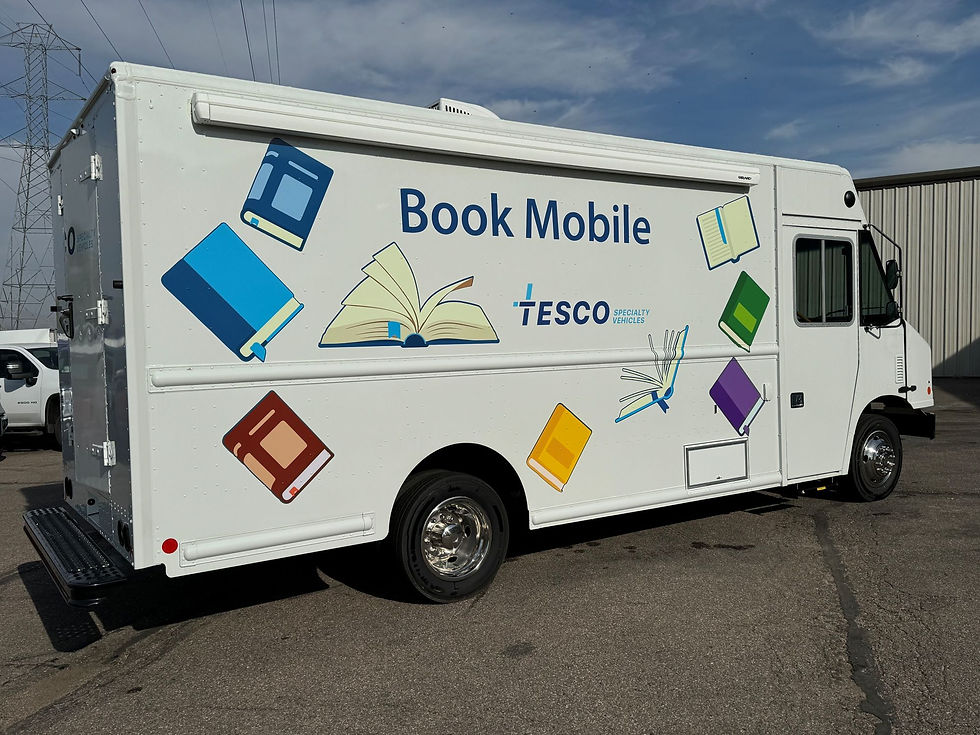Bringing literature to communities has never been more accessible.

Introduction
In an age where digital media dominates, the charm and impact of physical books remain unparalleled. Bookmobiles play a pivotal role in promoting literacy, reaching underserved areas, and fostering a love for reading across all age groups. If you're considering investing in a bookmobile, whether for a library, school, or personal venture, this guide will walk you through everything you need to know to make an informed decision.
Why Invest in a Bookmobile?
Expand Reach: Bring books to communities without easy access to libraries.
Promote Literacy: Encourage reading habits among children and adults alike.
Community Engagement: Serve as a mobile hub for events, workshops, and reading programs.
Flexibility: Adapt routes and schedules based on community needs.
Types of Bookmobiles
1. Van-Based Bookmobiles
Size: Compact and easy to maneuver.
Ideal For: Urban areas with tight streets or limited parking.
Features: Basic shelving, limited space for patrons inside.
2. Bus-Based Bookmobiles
Size: Larger, offering more space for books and patrons.
Ideal For: Suburban and rural areas.
Features: Seating areas, computer stations, and accessibility options.
3. Trailer Bookmobiles
Size: Varies based on the towing vehicle.
Ideal For: Organizations that already have vehicles capable of towing.
Features: Customizable interiors, detachable for flexible use.
Key Considerations When Buying a Bookmobile
1. Purpose and Goals
Define Your Mission: Educational outreach, community service, commercial sales?
Target Audience: Children, adults, specific communities?
2. Budget
Initial Costs: Purchase price, customization, technology integration.
Operational Costs: Fuel, maintenance, staffing, insurance.
3. Size and Capacity
Book Inventory: How many books do you plan to carry?
Patron Space: Will people enter the bookmobile or is it a curbside service?
4. Customization Options
Shelving and Storage: Adjustable shelves, secure storage for transit.
Technology: Wi-Fi hotspots, computers, e-readers.
Accessibility: Ramps, lifts, ADA compliance.
5. Maintenance and Support
Manufacturer Support: Warranty options, customer service.
Local Maintenance: Availability of service centers familiar with bookmobiles.
6. Legal and Regulatory Compliance
Licensing: Driver requirements for larger vehicles.
Zoning Laws: Permits for parking and operating in certain areas.
Safety Regulations: Regular inspections, safety equipment.
Tips for a Successful Purchase
Research Manufacturers: Look for reputable companies with experience in building bookmobiles.
Visit Trade Shows: Get hands-on experience with different models.
Consult with Current Owners: Gain insights from those already operating bookmobiles.
Plan for the Future: Choose a model that can adapt to evolving needs.
Financing Your Bookmobile
Grants and Funding: Explore government grants, educational funds, and non-profit organizations.
Partnerships: Collaborate with local businesses or community groups.
Fundraising: Host events or online campaigns to raise funds.
Conclusion
Investing in a bookmobile is more than purchasing a vehicle—it's committing to a mission of spreading knowledge and enriching communities. By considering the factors outlined in this guide, you'll be well on your way to making a purchase that serves your goals and benefits those you aim to reach.
Ready to take the next step? Browse our selection of customizable bookmobiles and transform the way you connect with your community.
